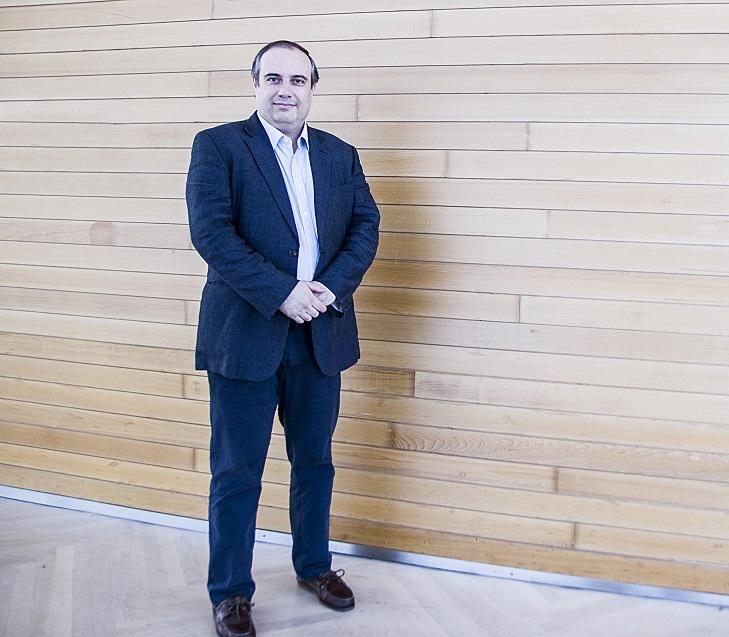
Submitted by Dr F. Gomollon-Bel on Wed, 22/09/2021 - 12:29
Today, the Royal Academy of Engineering has announced the election of 69 leading figures in the field of engineering and technology to its Fellowship. Among them is our Cambridge Graphene Centre Director Andrea C. Ferrari, Professor of Nanotechnology.
Professor Andrea Ferrari's work sits at the frontier between engineering, nanotechnology and materials science. He is a world authority on characterisation of carbon materials, including diamond-like carbon, nanotubes and graphene. His work underpins the interpretation of Raman scattering in carbon-materials and is a worldwide standard in industry. Collaborations with industry have enabled the pull-through of sciences to technologies in several areas. He is a global leader in graphene and related materials engineering, having pioneered many areas, from mass scale identification by spectroscopic means, to their implementation in printed and flexible electronics, photodetectors, modulators, lasers, and plasmonic structures. Prof. Ferrari is also Fellow of the American Physical Society, of the Materials Research Society, of the Institute of Physics, of the Optical Society, of the European Academy of Sciences, of the Academia Europaea, and of the Royal Society of Chemistry.
Sir Jim McDonald FREng FRSE, President of the Royal Academy of Engineering, said in a press release: “Our Fellows represent the best of the best in the engineering world, and we welcome these 69 excellent and talented professionals to our community of businesspeople, entrepreneurs, innovators and academics. This year’s new Fellows are the most diverse group elected in the history of our institution. As the UK’s National Academy for engineering and technology, we have a responsibility to reflect the society we serve in addressing the shared challenges of our future.”
Andrea C. Ferrari, FREng, says: “The mission of the Cambridge Graphene Centre is to investigate the science and technology of graphene and related materials. This engineering innovation centre allows our partners to meet, and effectively establish joint industrial-academic activities to promote innovative and adventurous research with an emphasis on applications. It is often at the interface between academia and industry that new challenges for fundamental research are generated. I am pleased the Royal Academy of Engineering has recognized the translational potential of our work and I see this as a further encouragement to develop state of the art facilities that will lead to world class research, technology and innovation.”

